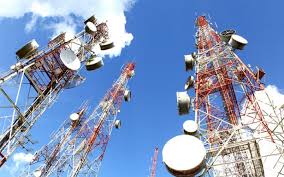The Socio-Economic Rights and Accountability Project (SERAP) has demanded that the Federal Government and telecommunications companies (telcos) reverse the recent 50% increase in call and data tariffs within 48 hours, labeling the decision as unlawful. SERAP made this call on Tuesday, asserting that the hike violates the rights of Nigerians to affordable communication, a fundamental right guaranteed by international human rights standards. The organization vowed to take legal action if the tariff increase is not rescinded within the given timeframe.
In its statement, SERAP emphasized the significant negative impact of the tariff hike on the Nigerian public, particularly small and medium-scale enterprises (SMEs). Many of these businesses depend on affordable internet services for their day-to-day operations, and the increased costs could lead to reduced productivity, decreased revenue, and operational challenges. The group also noted the rise in the cost of living, exacerbated by inflation and the removal of fuel subsidies, and how the tariff hike will only add to the financial strain on Nigerians.
The hike, which was announced by the Nigerian Communications Commission (NCC) earlier this week, has sparked widespread concerns among Nigerians, who view telecommunications services as essential for business, education, and social connectivity. With the new tariff increase, the minimum cost for a phone call will rise from N6.40 to N9.60 per minute, with average call rates jumping from N11 to N15.50 per minute. Text message rates will increase from N4 to N6 per message, while data costs will rise from N350 per gigabyte to N525 per gigabyte, significantly affecting users’ affordability.
In response to SERAP’s demand, the NCC defended the tariff hike as a necessary adjustment in light of rising operational costs within the telecommunications industry. The NCC explained that while network operators had proposed tariff increases as high as 100%, the Commission had approved a 50% hike after consulting with stakeholders. The NCC’s Director of Public Affairs, Reuben Muoka, explained that the adjustment was aimed at striking a balance between protecting consumers and ensuring the sustainability of the telecommunications industry, which includes thousands of local vendors and suppliers who are integral to the sector’s operations.
Despite this justification, SERAP questioned the transparency of the process, noting that the decision lacked adequate public consultation and failed to address the potential consequences for the majority of Nigerians, especially vulnerable groups who rely on affordable telecommunication services. The organization urged the NCC and the government to reconsider the hike and provide clear, transparent explanations for their decision.
The hike marks the first increase in telecommunications tariffs in over a decade, as the last adjustment was made in 2013. While the tariff hike is framed as a necessary measure to sustain the industry, SERAP and many Nigerians believe that it is a heavy burden that must be reversed in the interest of public welfare. SERAP’s ultimatum has sparked a wider conversation about the rights of Nigerians to affordable access to communication and the broader implications of the tariff hike on both the economy and individual livelihoods.
With the deadline fast approaching, all eyes are on the government and telecommunications companies to see whether they will comply with SERAP’s demands or face legal challenges.










